Discover It's Been a Minute
It's Been a Minute

It's Been a Minute
Author: NPR
Subscribed: 26,978Played: 1,038,511Subscribe
Share
© Copyright 2015-2025 NPR - For Personal Use Only
Description
Want in on a secret? Your likes and dislikes didn't develop by accident. There are subtle and not-so-subtle forces around you, shaping what you think, how you act, and even who you think you are. Brittany Luse is here to break the spell and help you feel wiser in a society that makes things blurry.
THE BEST POP CULTURE PODCAST AWARD WINNER AT THE 2025 SIGNAL AWARDS
It’s Been A Minute with Brittany Luse is the best podcast for understanding what’s going on in culture right now, and helps you consume it smarter. From how politics influences pop culture to how identity influences tech or health, Brittany makes the picture clearer for you every Monday, Wednesday, and Friday.It’s Been A Minute reaches millions of people every week. Join the community and conversation today.
If you can't get enough, try It's Been a Minute Plus. Your subscription supports the show and unlocks a sponsor-free feed. Learn more at plus.npr.org/itsbeenaminute
THE BEST POP CULTURE PODCAST AWARD WINNER AT THE 2025 SIGNAL AWARDS
It’s Been A Minute with Brittany Luse is the best podcast for understanding what’s going on in culture right now, and helps you consume it smarter. From how politics influences pop culture to how identity influences tech or health, Brittany makes the picture clearer for you every Monday, Wednesday, and Friday.It’s Been A Minute reaches millions of people every week. Join the community and conversation today.
If you can't get enough, try It's Been a Minute Plus. Your subscription supports the show and unlocks a sponsor-free feed. Learn more at plus.npr.org/itsbeenaminute
963 Episodes
Reverse
What's in and what's out in 2026? Let's set the stage for what to watch out for in the new year.As you fill out your own bingo card for what will or will not happen in 2026, join Brittany, NPR's tech correspondent Bobby Allyn, and NPR's political correspondent Danielle Kurtzleben. They are laying out the puzzle pieces of 2026 - from the politics of masculinity to the bubble of artificial intelligence to the end of Queen Bee - and piecing them together, so you know what to set your sights on for the next calendar year. Support Public Media. Join NPR Plus.Follow Brittany Luse on Instagram: @bmluseFor handpicked podcast recommendations every week, subscribe to NPR’s Pod Club newsletter at npr.org/podclub.Learn more about sponsor message choices: podcastchoices.com/adchoicesNPR Privacy Policy
From CBD leggings to Soulcycle, wellness is reshaping our relationships to our bodies and souls. But what even is "wellness?" Well, for one, it's a global industry worth 6 trillion dollars. And it encompasses all kinds of things – including spirituality: from the spirituality of wellness practices like yoga and reiki, to treating wellness itself like a religion. As spirituality, self-care, and capitalism swirl together, what is missing from the story?Brittany is joined by Alyssa Bereznak, GQ's Wellness Director, and Rina Raphael, author of the book The Gospel of Wellness: Gyms, Gurus, Goop, and the False Promise of Self-Care, to get into what people get out of a wellness-based spiritualism and consumerism.This episode originally aired on March 17, 2025.Support Public Media. Join NPR Plus.Follow Brittany Luse on Instagram: @bmluseFor handpicked podcast recommendations every week, subscribe to NPR’s Pod Club newsletter at npr.org/podclub.Learn more about sponsor message choices: podcastchoices.com/adchoicesNPR Privacy Policy
If society privileges "thin" people, should you aspire to conform? And at what cost?Last year, online influencer Slim Kim went viral for a TikTok where she said she loves "being skinny." It sparked a debate that continued throughout 2025: how do we talk about bodies without falling into "body fascism." And with drugs like Ozempic and Wegovy flooding the market, how are the ways we talk about bodies shifting and changing?Brittany is joined by authors Emma Specter and Kate Manne to find out: what's so wrong with loving being skinny?This episode originally aired on December 6, 2024.Support Public Media. Join NPR Plus.Follow Brittany Luse on Instagram: @bmluseFor handpicked podcast recommendations every week, subscribe to NPR’s Pod Club newsletter at npr.org/podclub.Learn more about sponsor message choices: podcastchoices.com/adchoicesNPR Privacy Policy
If you want something badly enough, should you have it?Today, Brittany is investigating so-called "manifestation." It's this popular belief that if you want something badly enough, it'll come to you. But here's the thing: our relationship to the internet and algorithms is creating a feedback loop that actually makes our own dreams seem more...possible? But where's the line between dreams, reality, and the internet? Brittany calls on Tara Isabella Burton, an author and journalist, and New York Magazine's Rebecca Jennings to get to the bottom of this trend: the appeal of manifestation, its symbiotic relationship with the internet, and why it might make us less aware of our humanity.This episode originally aired on March 31, 2025.Support Public Media. Join NPR Plus.Follow Brittany Luse on Instagram: @bmluseFor handpicked podcast recommendations every week, subscribe to NPR’s Pod Club newsletter at npr.org/podclub.Learn more about sponsor message choices: podcastchoices.com/adchoicesNPR Privacy Policy
Christianity showed up in the mainstream in unexpected ways this year. Are we in a revival?Take a look at this year's Billboard charts. For the first time, multiple Christian musicians charted on the Billboard Hot 100 at the same time — and stayed there for weeks. And some of the biggest hits of the year - like Alex Warren's "Ordinary" - pull from Contemporary Christian Music sounds. Plus, Trump says he wants to defend Christians. In the episode, Brittany talks with Christianity Today reporter Kelsey Kramer McGinnis to understand the multi-billion dollar machine behind the Christian Contemporary Music genre and how this behind-the-scenes system impacts what music you hear.This episode originally aired on July 23, 2025.Support Public Media. Join NPR Plus.Follow Brittany Luse on Instagram: @bmluseFor handpicked podcast recommendations every week, subscribe to NPR’s Pod Club newsletter at npr.org/podclub.Learn more about sponsor message choices: podcastchoices.com/adchoicesNPR Privacy Policy
Why are Mormons so popular, you ask? Because it's part of their faith.From Hulu's The Secret Lives of Mormon Wives to your favorite homemaking TikTok influencers, the women of the Church of Latter Day Saints have been gaining massive audiences for over a decade. Brittany is joined by Jana Riess, senior columnist at Religious News Service and author of The Next Mormons: How Millennials are Changing the LDS Church to discuss how Mormon culture provides some of TikTok's most powerful influencers with heavenly tools for viral success.This episode originally aired on November 12, 2024.Support Public Media. Join NPR Plus.Follow Brittany Luse on Instagram: @bmluseFor handpicked podcast recommendations every week, subscribe to NPR’s Pod Club newsletter at npr.org/podclub.Learn more about sponsor message choices: podcastchoices.com/adchoicesNPR Privacy Policy
What's it like to date a man? Ask pop stars or your friends, and you might hear it's a struggle.From Sabrina Carpenter to Summer Walker, some of the biggest female artists on the charts today…are absolutely through with men. It’s a sentiment that has a name: heteropessimism. Coined in 2019 by the writer Asa Seresin, the term encapsulates the embarrassment, disaffection and fatigue that comes from being heterosexual. “Men are trash” music that reflects these feelings isn’t new, but NPR Music editor Hazel Cills says it’s making a comeback. So what makes this time different? And what can we learn from this moment's heteropessimism about the realities of dating men today?(0:00) How Heteropessimism went mainstream(4:21) What makes this "Men are trash" moment different than the past?(7:55) What do women want from their relationships?(14:59) How long will we be in the "men are trash" era?Support Public Media. Join NPR Plus.Follow Brittany Luse on Instagram: @bmluseFor handpicked podcast recommendations every week, subscribe to NPR’s Pod Club newsletter at npr.org/podclub.Learn more about sponsor message choices: podcastchoices.com/adchoicesNPR Privacy Policy
There’s been a lot of discourse about what “6 7” means, but what actually makes it meaningful?The “6 7" meme was everywhere this year, online and off. Scrolling through TikTok? You probably encountered it. Sitting in math class? Your teacher probably dreaded everyone shouting out the numbers when they came up in class. NPR intern Sanidhya Sharma investigated the phenomenon by going to schools and sitting down with experts. He's here now to report back to Brittany and get into why some memes aren't for everyone.Support Public Media. Join NPR Plus.Follow Brittany Luse on Instagram: @bmluseFor handpicked podcast recommendations every week, subscribe to NPR’s Pod Club newsletter at npr.org/podclub.Learn more about sponsor message choices: podcastchoices.com/adchoicesNPR Privacy Policy
Welcome to the third annual IBAMMYs Culture Awards Show, where we reflect and honor the best and worst cultural moments of the year.Brittany is joined by Sam Sanders, host of KCRW's The Sam Sanders Show, and Tre'vell Anderson, host of The Seated podcast. All three nominated a person or moment for each of the four categories. NPR's Culture Committee then voted on a winner. Today, we reveal the winners and losers of 2025 and run through the moments we want to remember or forget.This year's categories & nominees are:Word of the Year:"Slop""Clock it""Labubu"Villain of the Year:Sydney SweeneyGlinda the Good WitchBillionairesThe Candle in the Dark:PinkPantheressOne of Them DaysLinikerNot-on-My-Bingo Card:KPop Demon HuntersYolanda AdamsKaty PerryWho will win?(0:00) How will you look back on 2025?(2:30) The Word of the Year: Slop, Clock It, or Labubu?(7:51) Villain of the Year: Sydney Sweeney, Billionaires, Wicked Glinda?(18:07) What brought you joy this year?(23:23) Not-on-my-Bingo Card: Kpop Demon Hunters, Yolanda Adams, Katy PerrySupport Public Media. Join NPR Plus.Follow Brittany Luse on Instagram: @bmluseFor handpicked podcast recommendations every week, subscribe to NPR’s Pod Club newsletter at npr.org/podclub.Learn more about sponsor message choices: podcastchoices.com/adchoicesNPR Privacy Policy
Heated Rivalry - the hit HBO Max series - has it all: scintillating romance, hot guys, sports (kind of), and, most importantly, portrayals of gay love and sex that don’t hold back. Steamy, sensual TV shows aren’t new, but the Canadian series has captured the public's attention in a way that a show hasn’t in a while. So, what’s behind its cultural resonance? What does it mean that this gay romance was written by a woman? And why are straight women and gay men equally into the sex scenes?Michel Ghanem, TV critic and columnist of “Appointment Viewing” for The Cut, and Glen Weldon, co-host of NPR’s Pop Culture Happy Hour, join the show to get into why we’re all waiting for every new episode with bated breath. (0:00) What is Heated Rivalry really about?(2:40) How successful is the gay TV show?(6:05) Why are straight women into gay romance?(9:25) Why all audiences see something new in the sex scenes(12:12) Can straight actors play queer characters?(18:30) "Wait, What?!" A Pop Culture Trivia GameSupport Public Media. Join NPR Plus.Follow Brittany Luse on Instagram: @bmluseFor handpicked podcast recommendations every week, subscribe to NPR’s Pod Club newsletter at npr.org/podclub.Learn more about sponsor message choices: podcastchoices.com/adchoicesNPR Privacy Policy
Are we spending too much on other people’s weddings?Going to a friend's weddings can be so fun and meaningful… but it can also really hurt your wallet. A survey by LendingTree found that 31% of people who had been to a wedding in the past five years had accrued debt to attend. So what’s driving up the cost of weddings for guests? And what makes it so hard to say no to these expenses?Brittany breaks it down with Allyson Rees, senior analyst at trend forecasting firm WGSN, and Annie Joy Williams, assistant editor at The Atlantic.(0:00) For hosts AND guests, weddings are getting really expensive(2:22) How much it costs to attend someone's wedding(4:58) Men are spending just as much as women(7:30) Weddings, social media, and "main character" energy(11:32) Is this the one night we get to pretend we're ultra rich?(13:42) How to say no to a friend's wedding(17:00) Do weddings prove who your friends really are?Support Public Media. Join NPR Plus.Follow Brittany Luse on Instagram: @bmluseFor handpicked podcast recommendations every week, subscribe to NPR’s Pod Club newsletter at npr.org/podclub.Learn more about sponsor message choices: podcastchoices.com/adchoicesNPR Privacy Policy
More women than ever are choosing to raise their children by their self. Is it time to hit reset on what we mean by "family" in America?America has some deeply held prejudices toward single moms, but some studies show that 40% of babies in the U.S. are born to unmarried women. In this episode Brittany looks into the joy and challenges these women face - from freedom and agency to affordability and loneliness.Brittany is joined by Pallavi Gogoi, NPR's Chief Business Editor, and Danielle Elliot, writer and a single mother. You can read Pallavi's reporting here.(0:00) Hitting reset on the definition of "family" and "single mom"(5:42) The power & agency of being a single mom(7:30) Does your child need a present father? (15:11) The struggles of being a single parent(18:29) Tips for raising a kid by yourselfSupport Public Media. Join NPR Plus.Follow Brittany Luse on Instagram: @bmluseFor handpicked podcast recommendations every week, subscribe to NPR’s Pod Club newsletter at npr.org/podclub.Learn more about sponsor message choices: podcastchoices.com/adchoicesNPR Privacy Policy
Some say we're entering the Woke 2.0 era. Is that real or imagined? From declining Target sales to Mamdani's election, some folks online are feeling a vibe shift. Is that feeling...woke? And if so, does that mean woke is back in style? To answer those questions - and to dissect whether or not woke ever left - Brittany is joined by Constance Grady, senior correspondent at Vox, and Tyler Austin Harper, staff writer at The Atlantic and co-host of the podcast, Time to Say Goodbye. Vote for It's Been a Minute in the NPR Pod Club Awards!(0:00) When did Woke end? (4:22) Why Woke doesn't work when racism is still on the rise(8:50) Target, Sydney Sweeney, and America's appetite for racism(12:08) The rise of "Dark Woke" & will it work?(13:51) Is Zohran Mamdani a sign of a new kind of Woke?(15:40) How MAGA made the blueprint for Woke 2.0Support Public Media. Join NPR Plus.Follow Brittany Luse on Instagram: @bmluseLearn more about sponsor message choices: podcastchoices.com/adchoicesNPR Privacy Policy
Is location tracking building relationships? Or ruining them?Four in ten U.S. adults share their locations with at least one person. But while it’s convenient – is it a violation of privacy? And who really needs to know where you are? We're getting into how location sharing became a norm, the pros and cons, and how to turn it off without making things weird.Brittany breaks it all down with Gina Cherelus, New York Times styles reporter and writer of their Third Wheel dating column, and Tatum Hunter, internet culture reporter at The Washington Post.(0:00) Who shares their location and why?(3:21) Sharing with your friends vs. your boyfriend(5:27) How location sharing became a social norm(9:30) What are the benefits of sharing your location?(14:21) What do companies get from knowing your location?(15:40) Why it can be damaging to share location with people(17:20) The awkwardness of stopping sharing location(19:29) How location sharing is redefining "privacy"Support Public Media. Join NPR Plus.Follow Brittany Luse on Instagram: @bmluseFor handpicked podcast recommendations every week, subscribe to NPR’s Pod Club newsletter at npr.org/podclub.Learn more about sponsor message choices: podcastchoices.com/adchoicesNPR Privacy Policy
What does it mean to be an independent adult?More young adults live with their parents than in the past, and are also delaying the traditional markers of independent adulthood like marriage and childbirth. Roughly nine-in-ten parents say it’s extremely or very important to them that their children be financially independent when they are adults, but are our cultural notions of financial independence changing? And are today’s young adults prepared to handle the emotional challenges of adult life? To find out, Brittany is joined by Nancy Hill, Professor of Education and Developmental Psychologist at Harvard University, and Kathryn Jezer-Morton, writer for New York Magazine and The Cut.(0:00) What does it mean to be an adult?(4:46) Is Gen-Z "failing to launch" into adulthood?(10:32) The myths of unpaid duesSupport Public Media. Join NPR Plus.Follow Brittany Luse on Instagram: @bmluseFor handpicked podcast recommendations every week, subscribe to NPR’s Pod Club newsletter at npr.org/podclub.Learn more about sponsor message choices: podcastchoices.com/adchoicesNPR Privacy Policy
It's an incredibly painful thing to do, so why are some kids cutting their parents out of their lives?27% of Americans are estranged from at least one family member, and the term "no contact" is increasingly being used to describe estrangement between adult children and their parents. But is estrangement happening more often, or are we just more open to talking about it? And is our culture around family shifting? Brittany sits down with journalist Kui Mwai and Whitney Goodman, licensed marriage and family therapist and the host of the Calling Home podcast, to find out.This episode originally aired on December 17, 2024.Follow Brittany Luse on Instagram: @bmluseFor handpicked podcast recommendations every week, subscribe to NPR’s Pod Club newsletter at npr.org/podclub.Learn more about sponsor message choices: podcastchoices.com/adchoicesNPR Privacy Policy
Fighting with your family doesn’t have to be a holiday tradition.The majority of Americans will celebrate Thanksgiving tomorrow. And while it’s meant to be a time of family togetherness… sometimes, this holiday can make you never want to see your family again. To go or not to go? To fight or not to fight? Well, our friends at NPR’s Life Kit have tips for how to answer these questions. Marielle Segarra, host of Life Kit, speaks with experts and identifies 12 strategies to keep your family dinner peaceful this year.Follow Brittany Luse on Instagram: @bmluseFor handpicked podcast recommendations every week, subscribe to NPR’s Pod Club newsletter at npr.org/podclub.Learn more about sponsor message choices: podcastchoices.com/adchoicesNPR Privacy Policy
Can you afford to pay two rents?Families across the country are asking that same question when it comes to childcare, as the yearly costs for daycare are becoming comparable to a year's rent in many places. How did childcare become so expensive, and how might everyone benefit if the government provided more support to parents? Professor of Sociology at the University of Wisconsin-Madison Jessica Calarco, and Senior Fellow at the Think Tank Capita Elliot Haspel are here to help Brittany find out. Follow Brittany Luse on Instagram: @bmluseFor handpicked podcast recommendations every week, subscribe to NPR’s Pod Club newsletter at npr.org/podclub.Learn more about sponsor message choices: podcastchoices.com/adchoicesNPR Privacy Policy
When the dream of buying a home seems unattainable, is it time to find a new dream? Or is there another option on the table?Bill Pulte, the director of the Federal Housing Finance Agency, or the FHFA, said the administration is “working on” a plan to introduce 50 year mortgage terms for homebuyers. But some Americans have already been working on their own plans towards homeownership… and it’s not the ‘nuclear family’ route. Brittany is joined by NPR chief economics correspondent Scott Horsley and NPR producer & author of The Other Significant Others: Reimaging Life with Friendship at the Center, Rhaina Cohen to get into the cult of homeownership in America. Together they search for a new outlook of what ‘adulthood’ looks like.(0:00) Will Millennials and Gen-Zers be able to buy homes?(7:56) Why Trump's mortgage policy probably won't work(10:53) The fundamental reasons housing is so expensive(12:37) Want to buy a home? Consider these options.(20:13) Responding to your commentsFollow Brittany Luse on Instagram: @bmluseFor handpicked podcast recommendations every week, subscribe to NPR’s Pod Club newsletter at npr.org/podclub.Learn more about sponsor message choices: podcastchoices.com/adchoicesNPR Privacy Policy
What’s the difference between feeling unsafe and being unsafe?According to Gallup, about half of Americans see crime as being extremely or very serious. And there are a lot of very real threats out there to people’s safety, but there’s also a lot of fearful rhetoric that’s more unfounded. While immigrants are less likely to commit crimes than U.S.-born citizens, and trans people are unlikely to commit mass shootings, fear of these groups is being weaponized against them. So how can we disentangle being unsafe and feeling unsafe – and better protect ourselves and each other? Brittany gets into it with Nicole Lewis, engagement editor at The Marshall Project, and Lex McMenamin, writer and editor.Follow Brittany Luse on Instagram: @bmluseFor handpicked podcast recommendations every week, subscribe to NPR’s Pod Club newsletter at npr.org/podclub.Learn more about sponsor message choices: podcastchoices.com/adchoicesNPR Privacy Policy





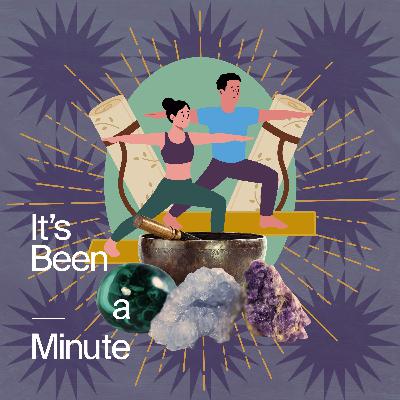

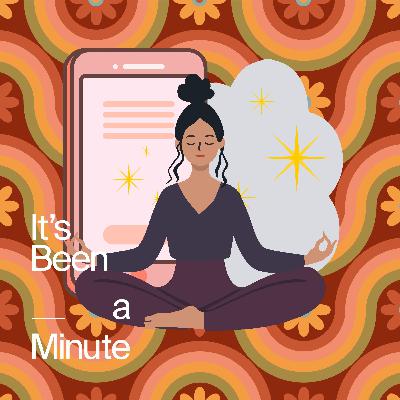

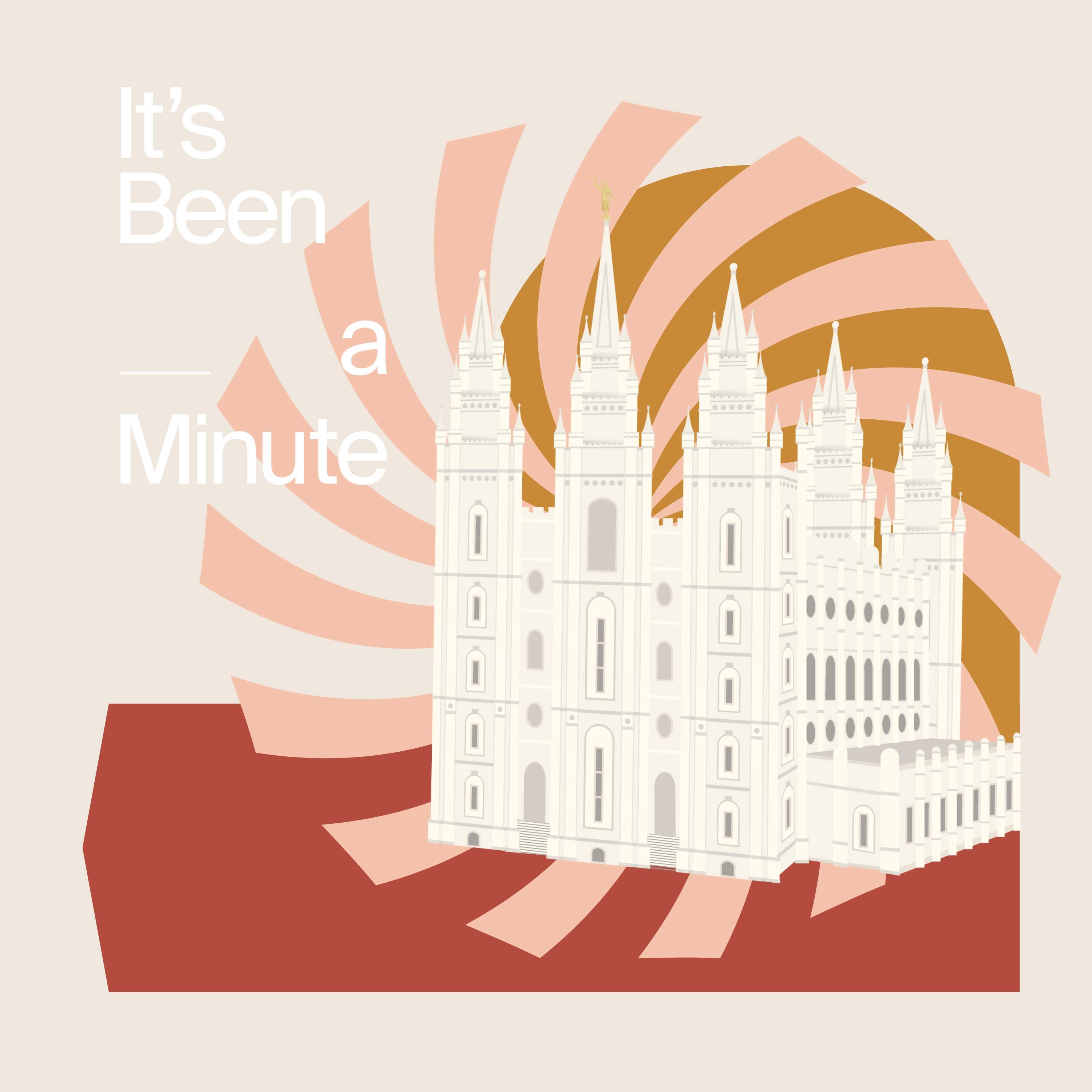
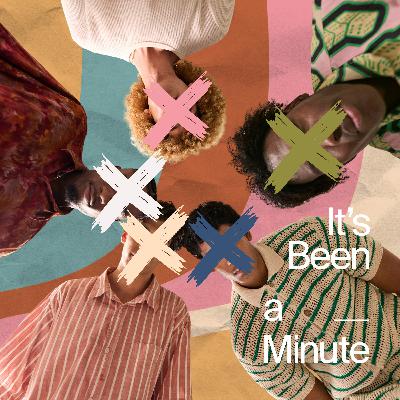
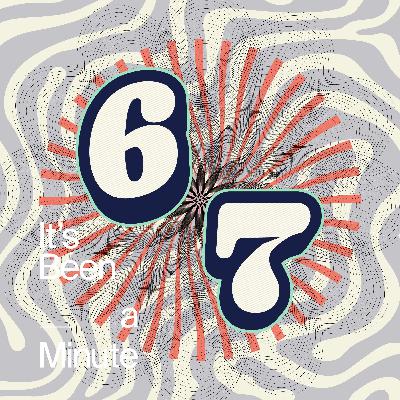



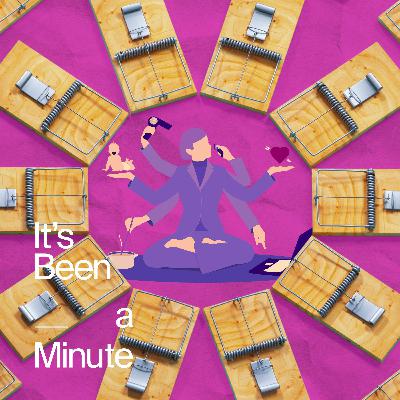






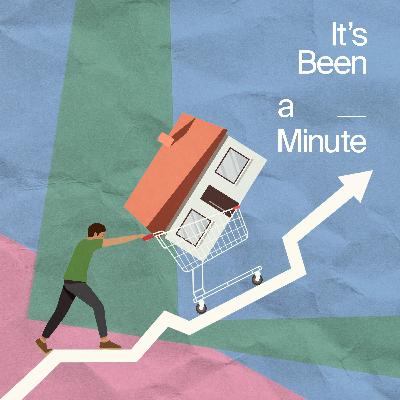
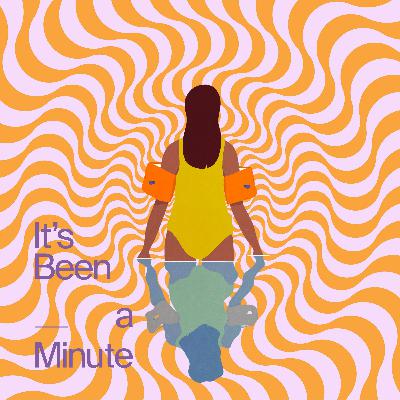



villain of the year category: y'all really not gonna say ICE or Steven Miller??
Finding a good restaurant today often comes down to discovering places that combine quality, speed, and great atmosphere. That’s why the vibrant experience at https://7brwcoffee.us/classics/house-blend/ stands out — it offers the same satisfaction you seek in a top-rated eatery but through perfectly crafted beverages. Their Cold Brew and friendly service make every visit feel like finding your new favorite spot.
Really interesting points in this episode, it’s true that people care more about the overall dining experience now than just the food itself. The “vibe” factor has become huge, especially with platforms like TikTok shaping where people go to eat. I’ve noticed that restaurant research has shifted too , instead of chasing Michelin ratings, most people look for reliable menus and ambiance online before visiting. For example, you can easily find the updated LongHorn Steakhouse menu here: http://longhornsmenus.com/ Having accurate menus and photos available online makes a big difference when people are choosing where to eat it’s basically part of the experience now.
I really enjoyed this episode — it perfectly captures how restaurants now need to focus on the overall experience rather than just the food. It reminded me of https://deneme-bonus-verenler.com/ where the story behind the menu creates its own kind of “vibe.” Instead of chasing Michelin stars or influencer trends, they showcase authentic Turkish flavors and atmosphere, turning dining into a genuine cultural experience.
Could buy now pay later be a bubble in the making? Probably, especially if it's being used to prey on people who can't afford their daily necessities (spoiler alert: if you have to use BNPL for groceries, you are in this category).
All I know is, I absolutely do not want someone using my voice to produce words as if they originated from my brain. Using a voice map and recordings to fabricate a likeness should never be misconstrued as the actual individual, and this case sets a wild precedent.
The problem with assigning labels like "Liberal" and "Conservative" to Gen-Z--which I remind people STILL has a little less than 1/3 of its population that HASN'T EVEN REACHED VOTING AGE--is that Liberal =/= Progressive in the US even though it is couched as such, and thus when you look at the current state of the Democratic Party it's more Republican-lite than upholding true Liberal values and has shown at least since 2016 that it absolutely DESPISES its Progressive wing.
Newsflash: Industry from a bygone era isn't coming back. It's like thinking we're all going back to typewriters or carrier pigeons on purpose- not.going.to.happen.
🙄
If apps are trafficking in consumers' time, there is a conflict of interest in tech helping users feel less lonely because they will then have motivation to seek real-life connections. Humans are a social species, and we have not evolved to fulfill those needs only virtually.
It's sad but not surprising that people have less attention to read books. We've all been training our brains on short video snippets and content that raises our anxiety and anger.
👀
It's great to process emotions with support of a social circle, but be careful that venting or mudslinging doesn't backfire.
I really enjoy these geographic specific "smackdowns", I learn a lot about fascinating people and historic events. All the guests have been great sports, so very little smackdown attitude is present.
Political memes are merely the evolution of political cartoons, which have existed... for more than 200 years.
We've gotten some bangers this summer, and there is also a wide range of themes and vibes. I'm here for it. 🎶
I’ve been a dedicated listener of “It’s Been a Minute” for a while now, and I’m consistently impressed by how insightful and thought-provoking each episode is. The way the host delves into current events and cultural trends with such depth and clarity is truly commendable. https://castbox.fm/episode/Choosing-the-Right-Parchment-Paper-for-Home-Cooking-id6230173-id721293509?country=us
Way to gloss over the fact that automobile manufacturers are ALSO marketing bigger and bigger SUVs to suburban women, dubbed the "suburban arms race." If you actually pay attention to male US car culture, you'd find most family men would rather drive sport wagons that are only available in Europe because "all big dumb men want big dumb pickups."
Dropout's content is really good, so interesting to hear more about how they operate!
I'm want to hear more about Black Appalachian. I loved this episode.